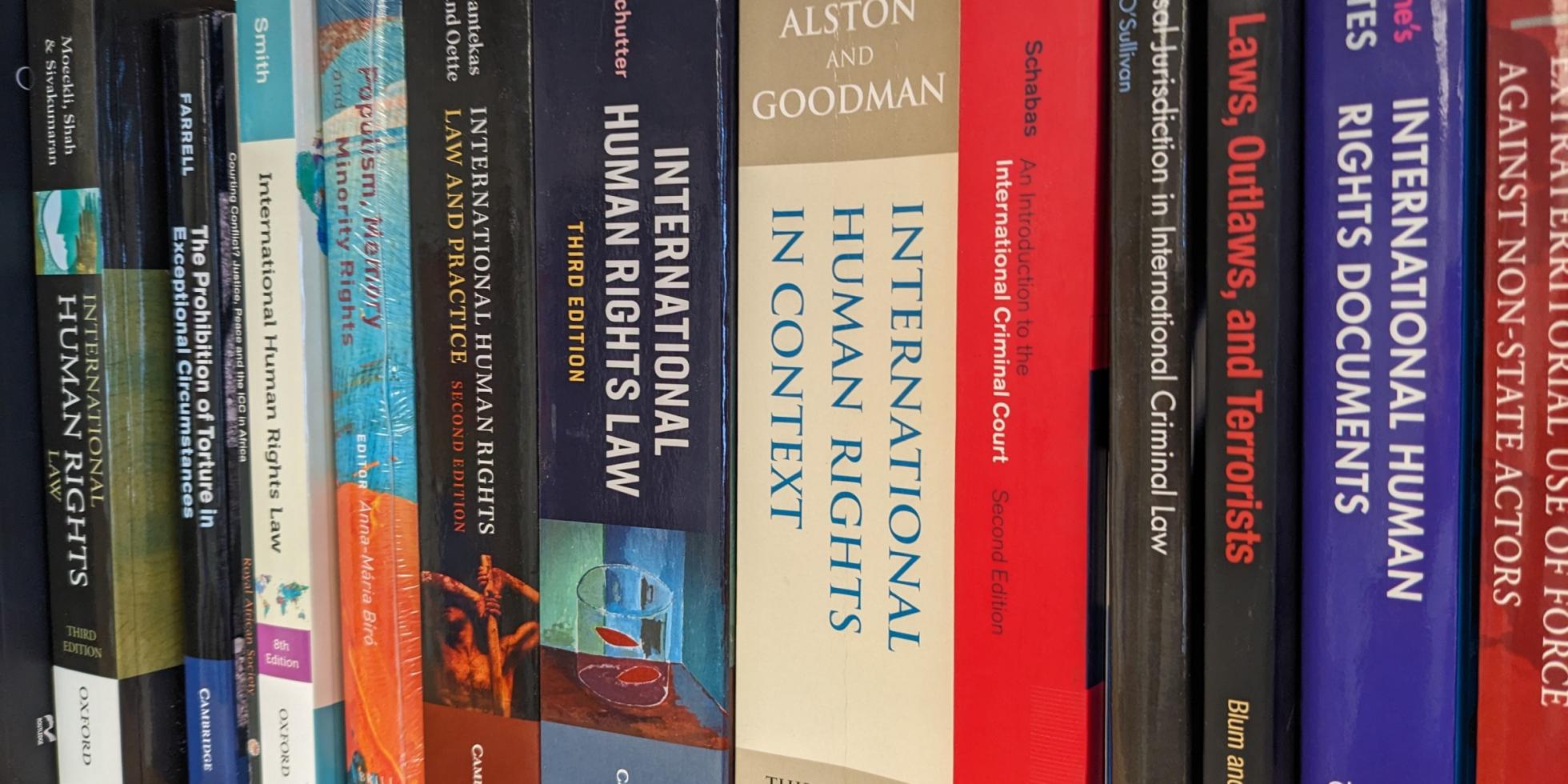The virtual human rights library brings together resources from multiple libraries and information services, both internal and external, to create an online hub dedicated to the study of human rights. This curation is unique in its interdisciplinary concerns and focuses on writings and research from social sciences, humanities, and law.
The virtual library is continually updated with the latest academic research in issue areas, as well as with relevant films, recorded conversations, and other forms of media.
Please Note:
The Virtual Library is usable by all visitors, but the hyperlinks to materials listed are for UChicago community members with a CNet ID and password.
Please direct feedback and suggestions to Kathleen Cavanaugh.
For technical assistance, email pozenhumanrights @ uchicago.edu.
Searchable Database
Click into the dropdowns to select the disciplines, keywords, and media type for your search, and then hit "Apply."
"Insecurity, Citizenship, and Globalization: The Multiple Faces of State Protection."
Adopting a long-term historical perspective, this article examines the growing complexity and the internal tensions of state protection in Western Europe and North America. Beginning with Charles Tilly's theory about state building and organized crime, the discussion follows with a...
"Institutional Change in the World Polity: International Human Rights and the Construction of Collective Identities."
This article discusses the transformation of the classical nation-state, as articulated in contemporary struggles for recognition. Elaborating neoinstitutional world polity theory, it analyses global institutional changes that underlie those transformations. It is claimed that the worldwide diffusion of the classical...
"Institutionalizing collective memories of hate: Law and law enforcement in Germany and the United States."
The institutionalization of distinct collective memories of hate and cultural traumas as law and bureaucracy is examined comparatively for the case of hate crime law. A dehistoricized focus on individual victimization and an avoidance of major episodes of domestic atrocities...
"Institutions and the adoption of rights: political and property rights in Colombia."
Citizenship rights are the result of specific political bargains between different collective actors and state authorities (Tilly Theory and Society 26(34):599–602, 1997). The political bargains for rights are encoded in institutions, and these institutions develop independently from each other and...
"Integrating children’s human rights and child poverty debates: Examples from young lives in Ethiopia and India."
There are few attempts to link human rights discourses and child poverty debates, though the field is expanding. Within sociology, both the study of rights and of childhood are marginal. This article utilises a sociological approach to bridge rights and...
"International discourse and local politics: Anti-female-genital-cutting laws in Egypt, Tanzania, and the United States."
The international diffusion of similar laws and policies across nations is now a well-covered theme in sociology, but no one has yet asked what these similar laws and policies mean. We take the case of anti-female-genital-cutting policies in Egypt, Tanzania...
"International human rights law and the politics of legitimation: Repressive states and human rights treaties."
This study explores, with quantitative data analyses, why nation-states with very negative human rights records tend to sign and ratify human rights treaties at rates similar to those of states with positive records. The study's core arguments are (1) that...
"International human rights law, global economic reforms, and child survival and development rights outcomes."
Are recent trends in international law supporting child rights and promoting neoliberal economic reforms complementary or contradictory? To answer this question, we identify the component parts of child rights mobilization, recent global economic reforms, and child rights outcomes to theorize...
"International Law and Hegemony: A Reconfiguration,"
Instead of appearing as a stable set of normative demands opposed to international politics, international law is better understood as an aspect of hegemonic contestation, a technique of articulating political claims in terms of legal rights and duties. The controversies...
"Justice in Post-Conflict Settings: Islamic Law and Muslim Communities as Stakeholders in Transition,"
This essay is one of the first collaborative efforts to identify the underlying norms embedded in diverse traditions of Islamic law as these apply to contemporary Muslim communities experiencing conflict or transitioning from conflict. This long overdue endeavor draws upon...

